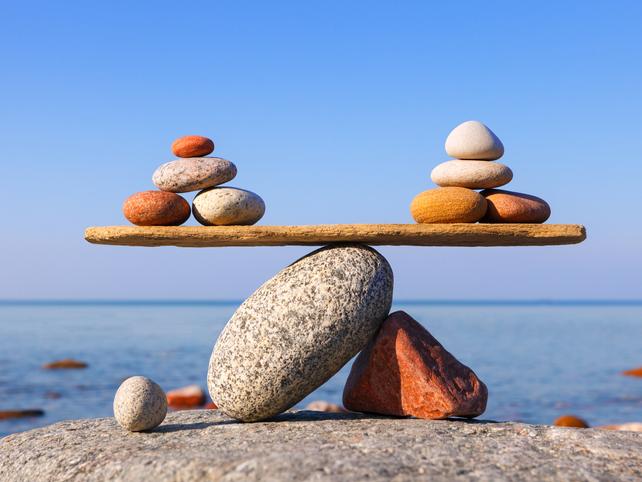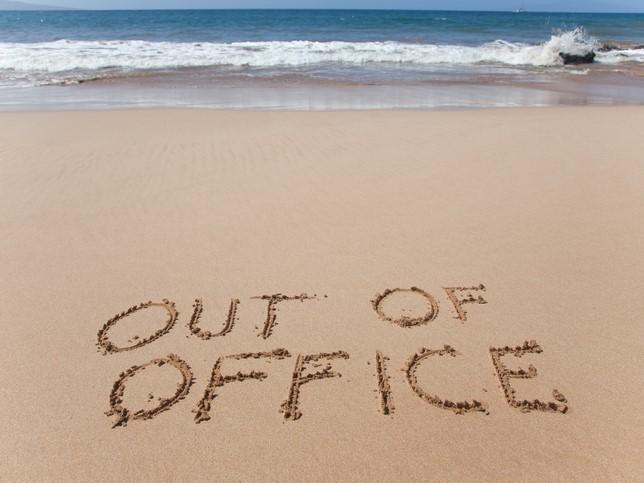Academia is not the first place that comes to mind when we think of balance and sustainable productivity. This is despite the fact that a healthy work-life balance has often been recognised as a cornerstone in staying energised and productive at home and at work.
Academic work culture often means long nights, last-minute adjustments and productivity prioritised over well-being. In this age of fully online, hybrid and traditional in-person classroom models, educators’ and support staff’s time is often stretched thin. We’ve all been guilty of checking and responding to emails before bed when we should be brushing our teeth, but what is the larger impact over time of reducing our moments to rest and decompress?
- Let’s get physical: using movement and outdoor spaces to enhance learning
- The boundaries to set so your students don’t take over your life
- Building emotional resilience is not creating a generation of ‘snowflakes’
Yet campuses can help foster more compassionate and resilient cultures through active involvement in health and promotion of work-life balance.
A framework for recognising a work-life imbalance
Has your energy been low lately? Do you feel like your temper is short? Having trouble sleeping? Do you have a sense of unease or stress? Do you spend time on work tasks and activities outside work hours? What time do you take for yourself?
Work-life balance, in an ideal world, should feel like an equilibrium that is sustainable and comfortably weighted between energy/life-enhancing and energy/life-depleting responsibilities, tasks and behaviours. When pressure and stress start to take their toll due to an increase in energy-depleting tasks, the balance is thrown off, leaving work and relationships to suffer.
The first step to reverse this is awareness. Using a resilience framework, we can begin to identify these responsibilities, tasks or worries that are energy depleting.
Start a time diary and keep track of everything you are doing in 15-minute increments, then assess and reflect on how you are spending time. If you manage your day with calendars, look at your day in blocks of time, reflect on how much time you spend on energy-enhancing tasks and see how that sits with you.
Balance and self-awareness
There is an infinite number of circumstances and drivers that can lead to poor work-life balance, but in short, we can gain or lose balance depending how we prioritise demands from our work/career and the demands of our personal life. Increases in work responsibilities that result in working longer hours are common in academic spaces and lead to burnout.
Building self-awareness helps us to respond to stress and challenges that occur in a more effective and compassionate way. The benefits of individual work-life balance extend beyond just the individual. Having a greater sense of balance impacts the ways we show up in personal and professional capacities. When we are less stressed over schedules and responsibilities, we have space to appreciate our work and engage more authentically and enthusiastically in productive partnerships with greater stability.
Think about what your most important values and priorities are and how you want to spend your time.
Ways to improve balance and boost resilience
1. Seek support and offer support
The presence of social support can affect the resilience of individuals, and in turn impact our work and personal life satisfaction. Increasing the level of support from friends, family, mentors or colleagues when you begin to feel the pressure or stress of work is important.
2. Don’t be afraid to communicate if you are struggling
Let people know you’re having a challenging time. This not only allows others to see how best to help you, but also helps to normalise asking for help. Arrange a meeting with your boss or supervisor to let them know you need more work-life balance. Spend time reflecting on areas of stress or concern to help identify the root problem. Come prepared to the meeting with ideas on how things can be adjusted to give you greater balance.
3. Take time to rest both mentally and physically – and use your vacation days!
Many times, we find ourselves tricked into thinking we’ve rested when we’ve merely stopped due to exhaustion. Rest should be so much more than just recovery, and we should each use our downtime, our off time, our vacation days to explore what that looks and feels like and lean into resting. At the Resilience Lab, we love the words of Tricia Hersey, founder of The Nap Ministry: “Rest is anything that connects your mind and body.” Schedule intentional time for yourself, and activities that are life-giving and restorative, such as going to the gym, reading a book – whatever fills your cup.
4. Take care of your health first and foremost
For many, it is easy to deprioritise taking care of ourselves over other pressing matters. Challenge yourself to centre the things that have to do within improving, maintaining or expanding your health and well-being. Add movement or physical activity as a part of your daily routine, do something fun. Turn off email notifications on your phone and create healthy intentional boundaries and space from work.
5. Learn to say ‘no’ and when to take on less
There is nothing wrong with saying ‘no’ to a project or extra commitment that will take up too much time or doesn’t serve your needs and personal objectives.
6. Manage other people’s expectations
Communicate your time boundaries, space needs and limits with work when faced with the expectations of others. Encourage those around you to do the same and hold each other accountable for reclaiming your time.
Aaron Davis is a graduate student assistant in the Resilience Lab at the University of Washington and 2022 UW Bothell Alumni of the Year.
If you would like advice and insight from academics and university staff delivered direct to your inbox each week, sign up for the Campus newsletter.




comment